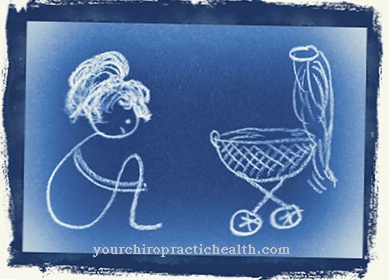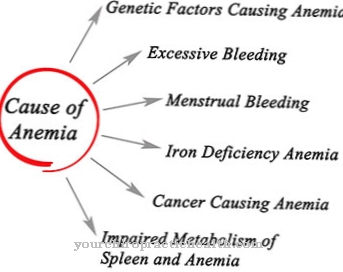Frequent urination, Bladder weakness, Frequent urination, Frequent need to urinate are slang terms for Pollakiuria and Polyuria. It is often the case that there is only an increased urge to urinate without actually having an increased amount of urine in the bladder. There are different forms of frequent urination. Polyuria is a pathologically increased urine excretion with increased thirst. In pollakiuria frequent urination in small amounts is characteristic, in which the total amount of urine is not increased.
What is Frequent Urination?

Frequent urination can be defined as increased excretion of urine, with at least 2 liters being reached within 24 hours (polyuria). In order to be able to compensate for the loss of fluid, those affected feel an increased thirst.
This occurs especially in diabetes mellitus. Fatigue and weight loss can be accompanying symptoms. If the frequent urination takes place in smaller amounts, doctors speak of pollakiuria. It differs from polyuria in that the amount of urine is not increased compared to normal. Bladder infections can be responsible for this.
There is often a burning sensation and pain when urinating. Pressure pain can also occur, which should mean going to the doctor to rule out bladder cancer.
causes
It is completely normal that humans produce around one and a half liters of urine every day. The urine itself forms in the kidneys and then collects in the urinary bladder. Concentrated toxins and degradation products are also excreted in the urine. As soon as the bladder is full, you will feel the familiar urge to urinate.
If a person ingests more fluid than he needs, the amount of urine also increases. There are different forms of unnatural urination.
With polyuria there is a pathologically increased urine excretion with significantly more than 2 liters in 24 hours. This also creates an urgent increase in thirst (polydipsia) to compensate for the loss of fluids. Often, however, so-called desiccosis (dehydration) is found. The causes for this are mostly diabetes mellitus, acute kidney failure, medication, alcohol, coffee and heart failure. Nocturia is a sub-form of polyuria that usually only occurs at night.
Frequent urination in small amounts is called pollakiuria. The total amount of urine excreted is not increased. Pollakiuria is a common symptom of urinary tract diseases. Pollakiuria can be triggered, among other things, by infections of the urinary tract, such as cystitis, kidney inflammation, prostate inflammation, stressful situations or pregnancy.
Home remedies ↵ for bladder
weakness
Pollakiuria should not be confused with overflow incontinence, which can occur when the urinary bladder is blocked, for example with benign prostate enlargement. In contrast to pollakiuria, the bladder is maximally full and there is a passive loss of small amounts of urine without the bladder emptying sufficiently.
You can find your medication here
➔ Medicines for bladder and urinary tract healthDiseases with this symptom
- Diabetes mellitus
- Enuresis
- Irritable bladder
- Acidosis
- Bladder cancer
- Pollakiuria
- Acute kidney failure
- Incontinence
- Prostatitis
- Cystitis
- Heart failure
- Chlamydial infection
Diagnosis & course
Frequent urination is not a disease, but a characteristic of one. In order for a doctor to be able to diagnose the disease, he must first talk to the patient in order to find out the beginning and occurrence of the increased urination. Blood and urine tests, as well as urinary tract and prostate ultrasound examinations, usually lead to a diagnosis in addition to a urinary examination.
Frequent urination manifests itself in a greatly increased urge to urinate. The amount of urine can be increased compared to a healthy person (for example 2 liters within a day), but a constant amount is also possible.
The fact that the sensation of having to urinate occurs much more frequently can be discovered in the case of a cystitis. That is associated with pain and a burning sensation. A pathological symptom is already mentioned as early as 8 times a day urinating, cases of 100 times are also known.
Complications
Frequent urination (polyuria) leads to more than four liters of urine being excreted within 24 hours. This can have different causes, which have different complications. In general, frequent urination results in the loss of a lot of fluid, which can dry out the body and lead to desiccosis.
Elderly people are particularly affected because they do not drink enough. Desiccosis easily leads to increased blood pressure as the blood volume is reduced and in the worst case this can lead to a heart attack. The polyuria can also lead to oliguria, i.e. a reduced flow of urine, which can further lead to kidney failure.
In particular, frequent urination is found, for example, in diabetes. If left untreated, diabetes can have a wide variety of complications. On the one hand, the clogging of the vessels leads to insufficient supply, especially in the area of nerves, in the eyes or on the foot. Diabetic polyneuropathies with abnormal sensations, blindness or a diabetic foot can result.
A urinary tract infection also involves frequent urination. These can heal spontaneously if they are uncomplicated or require medication for more complicated urinary tract infections. If left untreated, the urinary tract infection caused by bacteria can lead to a systemic spread of the bacteria, sepsis, which leads to death in over 60 percent of cases.
When should you go to the doctor?
At first, many people hardly notice frequent urination. It can have many causes, some of which are completely harmless. Drinks like coffee and some teas are drifting, which is why hardly anyone see a doctor. But there are also diagnoses that can be as diverse as diabetes and bladder weakness. In this respect, a visit to the doctor is advisable if the increased urination becomes a constant companion.
It is helpful for the doctor to examine the frequency himself. How long has frequent urination been? How often do people have to go to the toilet every day? The family doctor is usually the first point of contact and will get an exact picture. An internist can also be approached. The urologist is the specialist for the bladder and, unless there is another reason, is sure to be consulted by the general practitioner.
Frequent urination is likely to be uncomfortable for the person themselves. In society, it strikes your partner or friends that the person concerned often rushes to the quiet place. If you cannot give a plausible answer to questions about the cause, you should definitely see a doctor if you urinate frequently.
Doctors & therapists in your area
Treatment & Therapy
First of all, the doctor should be consulted. This will now ask questions about the time of day (day - night), increased or unchanged amount of urine, increased thirst, taking medication and alcohol and coffee consumption. This allows the doctor to determine the type of increased urination and diagnose its cause. If necessary, he also asks those affected to keep a diary about urination. This should list when and in which situations the increased urge to urinate occurs, what was drunk and eaten.
In addition to the conversation, the doctor will also have blood drawn in order to be able to measure blood sugar, electrolyte concentration and hematocrit value. Furthermore, the urine values are determined. If a cause has now been established, further investigations can be carried out. This may include a bladder specimen and an ultrasound scan of the prostate and urinary tract. In addition, it measures how much urine can be stored in the bladder, whether the urethra closes properly and whether the pelvic muscles are working properly.
In the case of heart failure and other causes of the heart, these are treated primarily.
Since the causes can be very different, therapy for increased urination is always individual. Bladder training can help if there are no organic causes. A log is kept of the visits to the toilet and the unnatural urge to urinate is suppressed. The aim of the therapy is to get the bladder used to its original filling level. There are also drugs that can treat frequent urination.
- Men: Alpha blockers that relax the muscle cells of the prostate and enlarge the urine outlet
- Women: estrogens, e.g. Ointments or suppositories
- Anticholinergics and spasmolytics to reduce the ability of the bladder muscles to contract
- Phytotherapeutics such as real goldenrod or pumpkin seeds
Psychotherapy can help if the urination has psychological causes. Even learning relaxation techniques such as progressive muscle relaxation, acupuncture or autogenic training can help those affected.
If other causes such as diabetes or enlarged prostate cause the increased urination, therapy should be started for these diseases.
Outlook & forecast
Frequent urination can have various causes and this is precisely a criterion for the associated prognosis. There are a number of reasons for frequent use of the toilet that are harmless and are therefore associated with positive medical prospects. Drinking too much in summer or during exercise is just as much a classic reason as pregnancy, which brings frequent urination as one of the first symptoms shortly after conception. Treatment is of course not necessary here. Irritable bladder and even cystitis often have a favorable prognosis without therapeutic intervention.
However, in persistent cases, cystitis can also take a negative course and, if bacterial colonization occurs, it can often be difficult to treat. The same applies to prostatitis in men. Treatment is essential if the frequency of urination is related to benign prostate enlargement. Here, surgery is the only option that will reliably eliminate the symptom.
It is difficult to estimate the prognosis of frequent urination, which is triggered by heart failure or the metabolic disease diabetes mellitus (diabetes). Here, the success of a therapy depends on the progression of the underlying disease, possible further diseases as well as the age and general health of the patient.
You can find your medication here
➔ Medicines for bladder and urinary tract healthHome remedies & herbs for frequent urination
- Bearberry leaf tea is used for cystitis.
You can do that yourself
To reduce the urge to urinate at night, it is often sufficient to reduce alcohol and coffee consumption and to forego other luxury foods. It also helps pelvic floor exercise and avoiding stress and diuretic activities. The bladder itself can also be trained by drinking a lot and regularly. Exercise and a healthy diet contribute to healthy bladder function and are among the most effective remedies against frequent urination.
Frequent urination in the context of an irritable bladder should first be recorded with the help of a urination diary and then analyzed together with the family doctor. There are also a number of natural helpers: Pumpkin seeds help with all types of prostate complaints, preparations with bearberry leaves soothe the bladder and reduce nocturnal urination. Goldenrod has a propulsive effect and can help control urinary behavior, and chamomile prevents irritable bladder.
In addition, if you urinate frequently, you should first exclude possible underlying diseases such as diabetes mellitus and keep a record of the urge to urinate. If the symptoms persist despite everything, an internist or urologist should be consulted to clarify the causes.

.jpg)
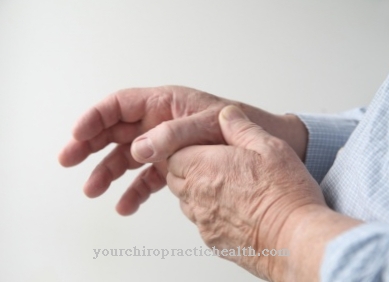







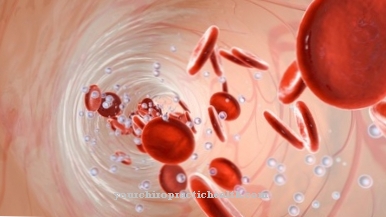

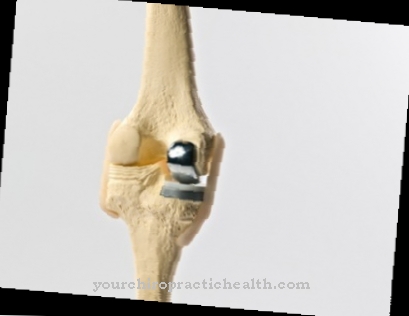
.jpg)

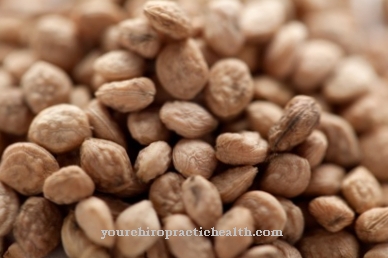



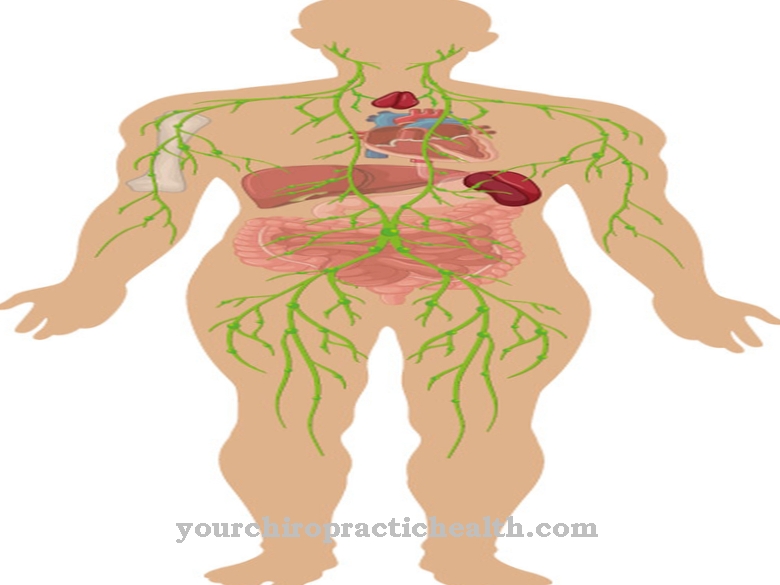


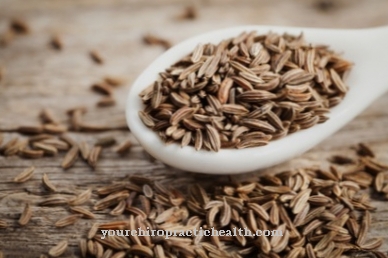
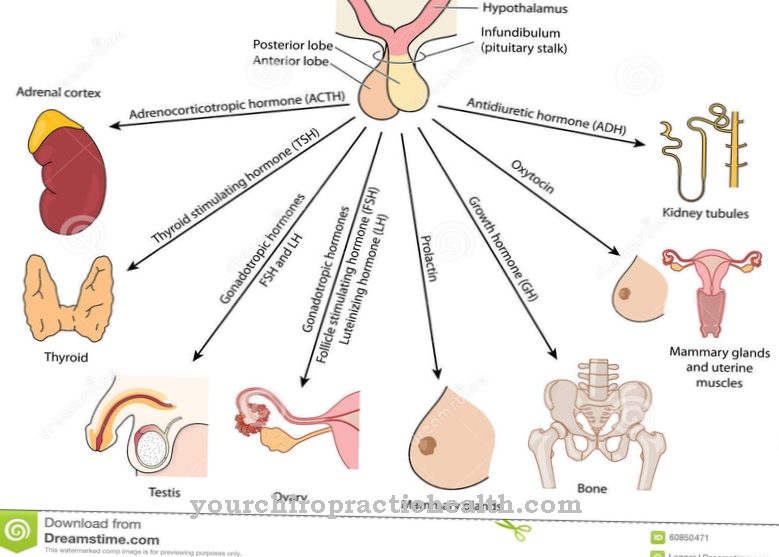

.jpg)
